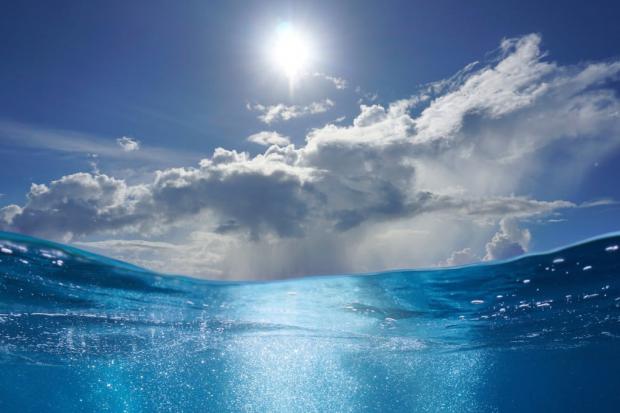
Breaking News
 From Inflation to Hyperinflation: The Gathering Monetary Hurricane
From Inflation to Hyperinflation: The Gathering Monetary Hurricane
 Deputy Attorney General Todd Blanche Fired Ed Martin as Chief of DOJ's Weaponization...
Deputy Attorney General Todd Blanche Fired Ed Martin as Chief of DOJ's Weaponization...
 Clintons Bend The Knee To Comer, Agree To Testify In House Epstein Inquiry
Clintons Bend The Knee To Comer, Agree To Testify In House Epstein Inquiry
 White House Ignores Congress -Hands More Weapons To Israelis & Saudis
White House Ignores Congress -Hands More Weapons To Israelis & Saudis
Top Tech News
 How underwater 3D printing could soon transform maritime construction
How underwater 3D printing could soon transform maritime construction
 Smart soldering iron packs a camera to show you what you're doing
Smart soldering iron packs a camera to show you what you're doing
 Look, no hands: Flying umbrella follows user through the rain
Look, no hands: Flying umbrella follows user through the rain
 Critical Linux Warning: 800,000 Devices Are EXPOSED
Critical Linux Warning: 800,000 Devices Are EXPOSED
 'Brave New World': IVF Company's Eugenics Tool Lets Couples Pick 'Best' Baby, Di
'Brave New World': IVF Company's Eugenics Tool Lets Couples Pick 'Best' Baby, Di
 The smartphone just fired a warning shot at the camera industry.
The smartphone just fired a warning shot at the camera industry.
 A revolutionary breakthrough in dental science is changing how we fight tooth decay
A revolutionary breakthrough in dental science is changing how we fight tooth decay
 Docan Energy "Panda": 32kWh for $2,530!
Docan Energy "Panda": 32kWh for $2,530!
 Rugged phone with multi-day battery life doubles as a 1080p projector
Rugged phone with multi-day battery life doubles as a 1080p projector
 4 Sisters Invent Electric Tractor with Mom and Dad and it's Selling in 5 Countries
4 Sisters Invent Electric Tractor with Mom and Dad and it's Selling in 5 Countries
Billions of People Could Benefit from This Breakthrough in Desalination That Ensures...

A novel approach to making seawater evaporate faster has been hailed as a significant breakthrough in desalination technology that will benefit billions of people worldwide.
Up to 36% of the world's eight billion people currently suffer from severe freshwater shortages for at least four months of the year, and this could potentially increase to 75% by 2050.
Seawater desalination is one of the most effective strategies to alleviate the impending scarcity, but existing processes consume massive amounts of energy, leaving a large carbon footprint.
Other problems plague the production of fresh water from the sea, including the necessity to de-scale membranes used in the reverse-osmosis desalination process with chemicals that are toxic to sea life. Furthermore, once the water is produced, the briny by-product is so overly rich in salt that it has the effect of an ecological contaminant.
Researchers from the University of South Australia (UniSA) have already demonstrated the potential of solar-powered evaporation as an energy-efficient, sustainable alternative to current desalination methods, but they are still limited by a lower evaporation rate for seawater compared to pure water due to the negative effect of salt ions on water evaporation.
UniSA materials science researcher Professor Haolan Xu has now collaborated with researchers from China on a project to develop a simple yet effective strategy to reverse this limitation.
By introducing inexpensive and common clay minerals like zeolite and bentonite into a floating photothermal hydrogel evaporator, the team achieved seawater evaporation rates that were 18.8% higher than pure water. This is a significant breakthrough since previous studies all found seawater evaporation rates were around 8% lower than pure water.



